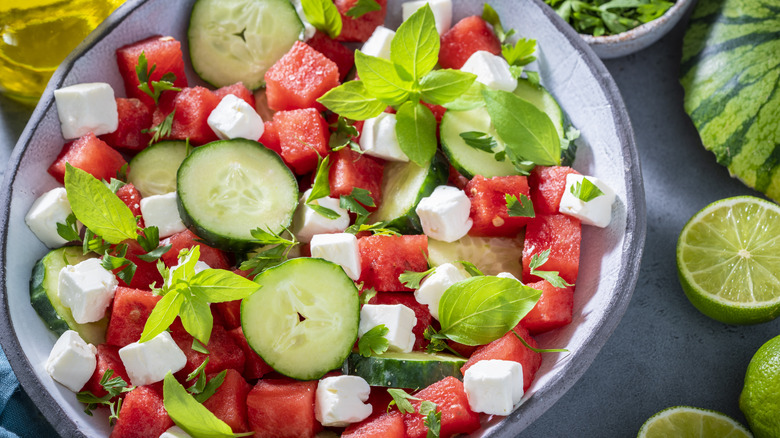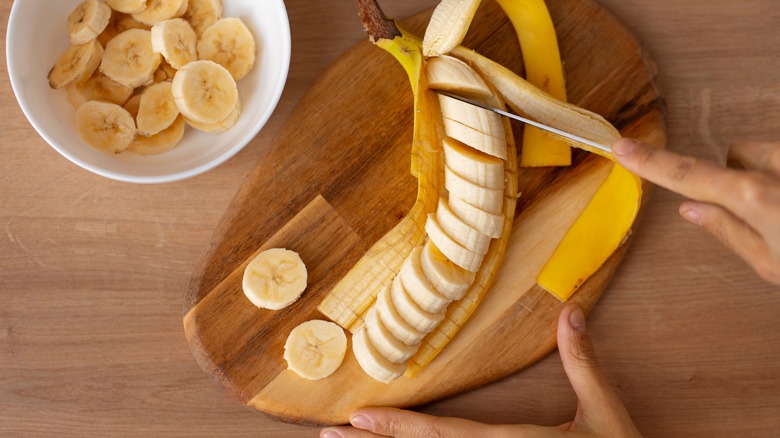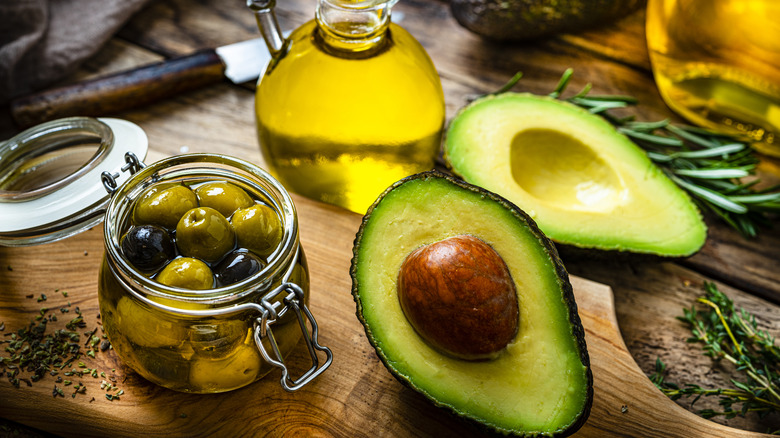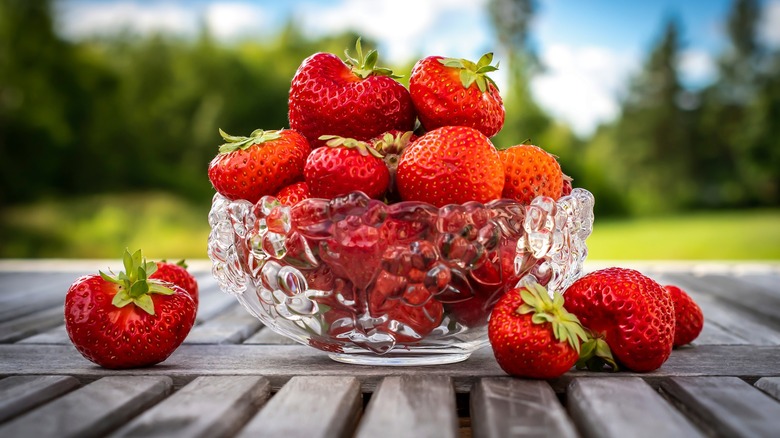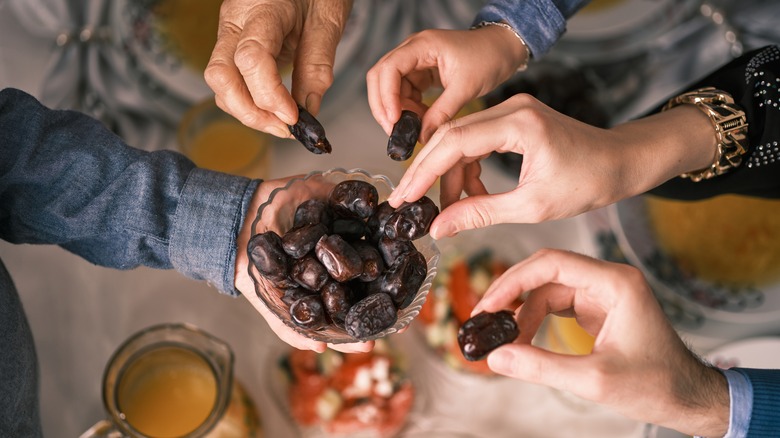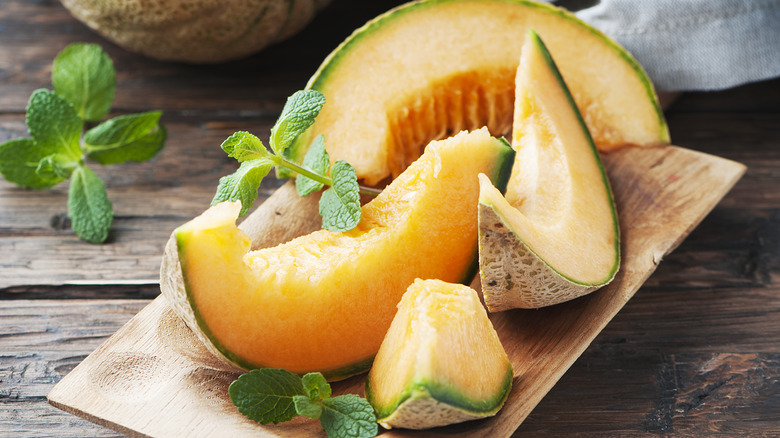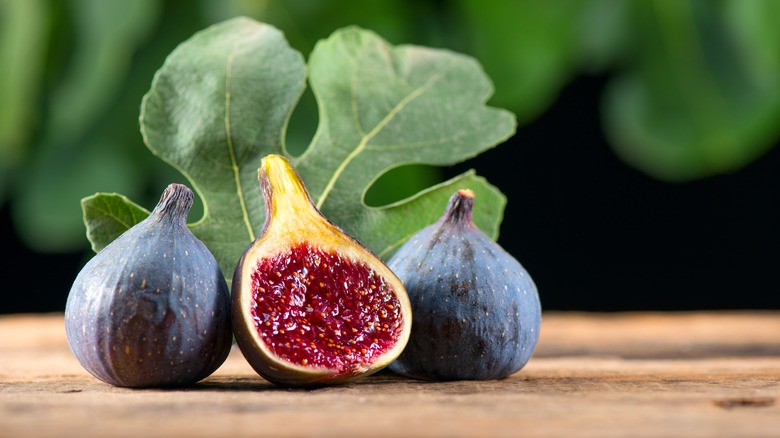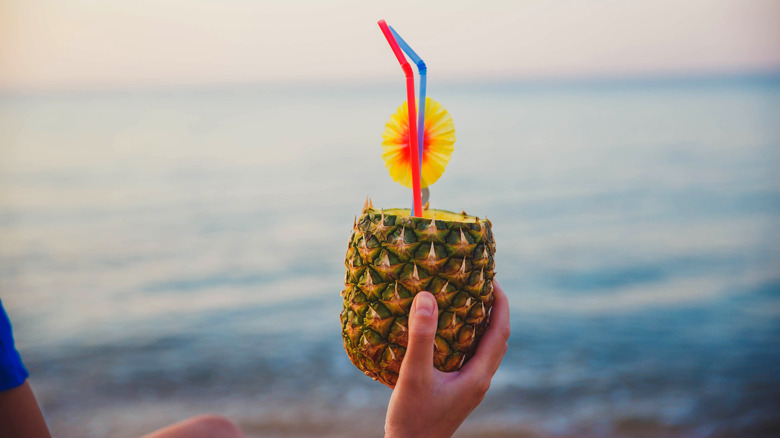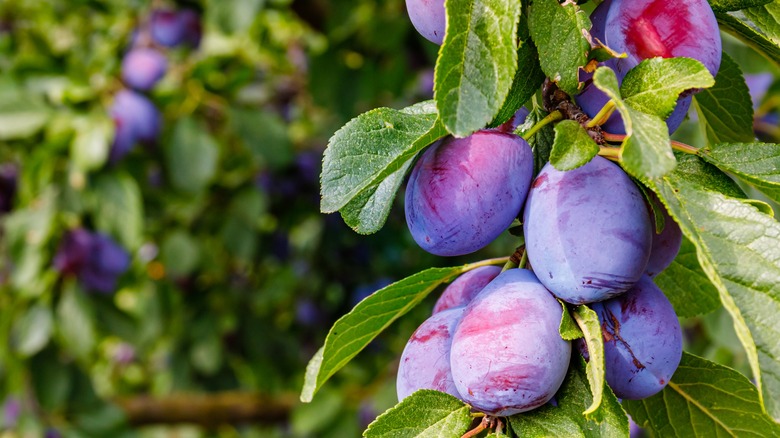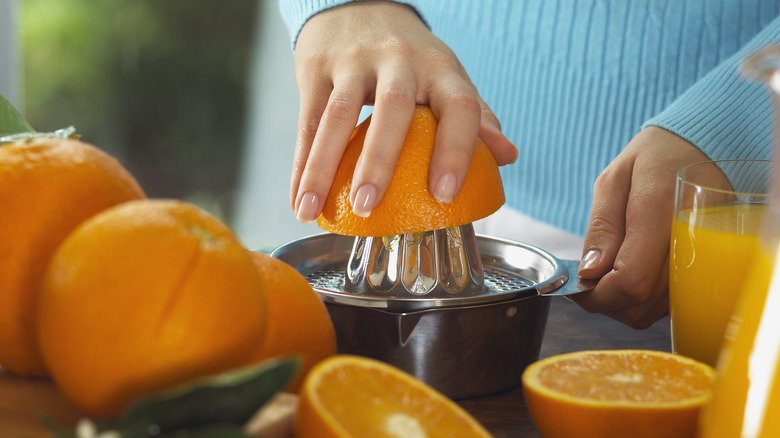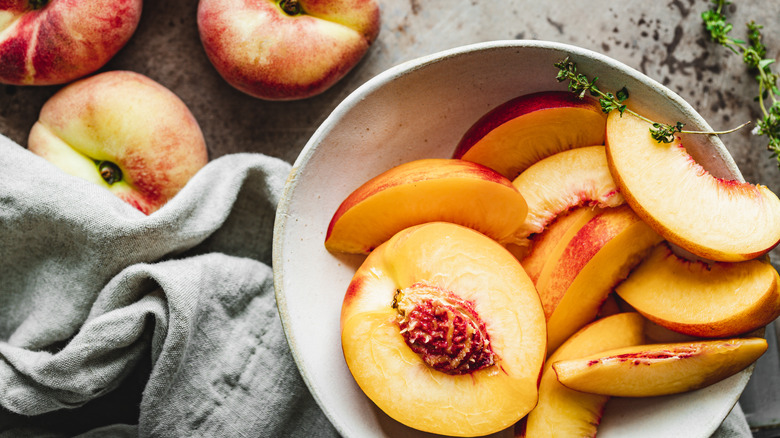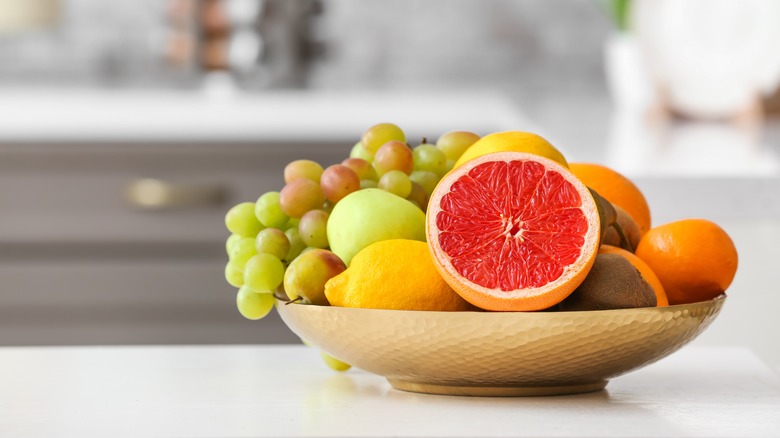The Best And Worst Fruits For Hydration
In our quest for hydration, we often turn to water as the main source, and rightfully so. Water is the most effective way to quench our thirst and keep our bodies functioning. However, nature provides us with another excellent source of hydration: fruit. Packed with high water content and abundant vitamins, minerals, and fibers, fruits will nourish your body while replenishing lost fluids.
But, while many fruits like watermelon, strawberries, and cucumber are incredible sources of hydration, not all fruits are created equal. Some fruits, although nutritious, might have a lower water content than others. For example, while packed with nutrients, bananas and avocados do not offer the same hydration level as the other, more water-dense fruits.
While water remains the gold standard for hydration, incorporating a variety of fruit into your diet can provide additional hydration benefits, and make your summers sweeter! However, choosing the right fruits to maximize these benefits is crucial. So, here's a breakdown of the best and worst fruits to promote hydration.
Best: Cucumber
Often found nestled among vegetables in salads or used as a crunchy addition to sandwiches, cucumbers have an interesting classification in botany. Despite the popular belief that it is a vegetable, cucumbers are, in fact, a fruit.
Perhaps one of the most remarkable attributes of cucumbers is their high water content. Comprising approximately 96% water, cucumbers are one of nature's most hydrating foods, states Bupa. They even surpass some well-known hydrating fruits, such as watermelon, regarding their hydration potential. This makes cucumbers an excellent choice if you're looking to replenish your body's water levels, especially during scorching summer days or after intense workouts.
You can throw them in many recipes, including an enticing cucumber salad or in a carrot cucumber raita — a staple dish in Indian cuisine. Besides their culinary applications, cucumbers' high water content and other nutritional benefits have garnered attention from health enthusiasts and experts alike.
Worst: Bananas
Bananas might not top the list of most hydrating fruits — they have a notably lower water content than many other fruits. And, while bananas might not be the juiciest or the most hydrating fruit in the traditional sense, they do bring another critical element to the table: potassium. According to Harvard T.H. Chan, potassium balances the levels of fluids in our cells. And, per a study at ResearchGate, the ingestion of bananas has a notable impact on plasma potassium concentration, especially in men who have exercised. This suggests that a banana might be useful after a rigorous workout to help rebalance electrolytes and aid in proper muscle function and recovery.
Additionally, bananas' natural sugar, fiber, and other essential nutrients provide sustained energy, making them popular among athletes and fitness buffs. So, while they might not quench your thirst like a watermelon slice or an orange segment, they offer many benefits and are versatile! Enjoy bananas alone or in various recipes, like classic, delightful banana bread.
Best: Watermelon
Watermelon stands out as an emblematic summertime fruit and it does so for good reason. Its refreshing texture and sweetness make it delicious and highly beneficial for staying hydrated, especially on hot days. According to UT Southwestern Medical Center, watermelon comprises 92% water. This significant water content implies that every bite of this juicy fruit contributes to your daily hydration needs, helping to quench your thirst and keep dehydration at bay — especially on sweltering days at the pool or while having a picnic!
Given its nutrient density and high water content, consuming watermelon can be likened to drinking a nourishing glass of water enriched with vitamins and antioxidants. Choosing the best and tastiest watermelon at the store is sometimes challenging, but with the right tips, you can master the perfect melon. Making watermelon a regular part of your diet treats your taste buds and ensures that you remain well-hydrated and enriched with vital nutrients.
Worst: Avocados
Avocados have grown in popularity as a trendy food item for their numerous health benefits. According to Medical News Day, these creamy fruits from south-central Mexico are cherished globally for their taste, versatility in culinary applications, and nutrition. However, regarding hydration, avocados don't rank particularly high when compared to other fruits.
While fruits like cucumbers or watermelon are synonymous with hydration, avocados tell a different story. They are denser and contain less water. This doesn't necessarily count against avocados — while they are an excellent source of other nutrients, they shouldn't be your go-to for hydration. Avocados are especially high in potassium; even more so than bananas!
The versatility of avocados extends beyond the soft, green flesh we commonly eat. It's important to know the variety of avocados and their respective seasons. Intriguingly, the avocado pit can be brewed into a rich, energizing tea, giving a whole new purpose to a part that we often discard.
Best: Strawberries
Strawberries are unsung heroes in the realm of hydrating foods. These ruby-red delights are tantalizing to the taste buds and pack a punch in terms of their water content. How so? According to My Food Data, strawberries comprise about 91% water, so they are very important in promoting hydration, especially during warmer months when our bodies are more susceptible to dehydration.
Strawberries don't just boast hydration, though. There are a few, lesser-known insights about strawberries that will surprise you! For instance, contrary to popular belief, strawberries aren't true berries. The seeds we see on their exterior make them unique, defying the traditional definition of berries.
In essence, strawberries are a delightful addition to our diet, offering taste and nutrition. Their exceptional water content and rich profile position strawberries as one of the best hydrating fruits available. Whether eaten alone, in a salad, or as a dessert, these fruits perfectly combine flavor and hydration.
Worst: Dates
Dates, originating from the Middle East, are often perceived as dry and not the best choice for hydration. Their wrinkled appearance and chewy texture can be misleading, making them seem like the antithesis of water-rich fruits like watermelons or cucumbers. However, the hydration factor is just one aspect of this complex and nutritious fruit!
Dates are not just about providing energy; they bring many health benefits. According to a study published by Nutrients, dates are rich in fiber, which aids digestion and promotes a feeling of fullness. This fiber content can assist in weight management and maintaining a healthy gut. Furthermore, they are a reservoir of vitamins and minerals, including potassium, magnesium, vitamin B6, and iron. These nutrients are crucial in various bodily functions, from maintaining heart health to supporting bone density. WebMD says they can even help with labor!
So, don't count dates out, but reconsider them as your go-to source for hydration.
Best: Cantaloupe
Cantaloupe stands out not just for its vibrant hue and sweet taste but for its water content. Constituting approximately 90% water, this melon is undeniably one of the best natural hydrators. Eating cantaloupe, especially during sweltering days, replenishes your body's water content.
You can eat cantaloupe in myriad ways. First, it's important to know how to choose the tastiest cantaloupe at the store. For snacks, you can wrap Proscuitto around cantaloupe slices for a sweet snack or add cantaloupe pieces to your morning yogurt or cereal. The same can be said for salads. Incorporate cantaloupe cubes with mixed greens, feta or goat cheese, mint, and a light vinaigrette for a refreshing summer salad, or make fruit smoothies. Even in desserts, cantaloupe tastes great — add it to fruit tarts, sorbets, or served alongside ice cream. If you decide to have cantaloupe in your dinner, there are various seasonings to boost its juicy flavor that you must try.
Worst: Figs
Fresh figs naturally contain water but have lower water content than other fresh fruits. This makes them less hydrating when consumed. Figs, like many fruits, lose a significant amount of their water content during the natural ripening process. Their natural sugars become more concentrated as they mature, leading to the sweet and slightly jammy texture we all love. On the other hand, dried figs, as the name suggests, have gone through a drying process that further reduces their water content. This is a common characteristic of all dried fruits. As they are dehydrated, the water is removed, leaving behind a denser fruit in flavor and nutrients. While dried figs might offer more energy in the form of calories and carbohydrates, they are not ideal for hydration.
Still, they offer many other nutritional benefits. Despite their low hydration properties, figs can still be delicious! You must try these six types of figs and mouth-watering recipes like the roasted fig raspberry tart. If you want to enjoy figs, just remember to pair them with a glass of water to stay hydrated!
Best: Pineapple
The tropical delight pineapple is a sweet treat full of hydration. According to the National Center for Complimentary and Integrative Health, pineapple stands out not only because of its water content but largely due to an enzyme it possesses called bromelain. Bromelain is not just another compound — it boasts huge health benefits. One of the foremost benefits is its potential to aid in digestion. An efficient digestive system ensures better absorption of water and nutrients, which contributes to overall hydration. This means that consuming pineapples can lead to a well-hydrated body.
However, the wonders of pineapple don't end with bromelain. Pineapple crowns can be saved to create the ultimate summer tea. It's a perfect drink to cool off with by the pool or on the beach. Another intriguing fact is that fresh pineapples tend to be sweeter in the morning, as per scientific observation. Weird, huh? We suggest running to the grocery store, in the morning if you can, to snag a pineapple for your future meals!
Worst: Prunes
Prunes, or dried plums, rank at the lower end regarding hydration. According to Nourish, prunes undergo a dehydration process like many other dried fruits, considerably reducing their water content. This water loss is due to the drying method, which extracts moisture to prolong shelf life and enhance the fruit's natural sweetness. A highlight of prunes is their commendable fiber content. Fiber is a dietary necessity that aids digestion, ensuring our gastrointestinal system operates smoothly. Consuming prunes can help prevent constipation and promote regular bowel movements.
You can incorporate prunes into various meals. For example, stir prunes into oatmeal, yogurt, or chop and sprinkle over breakfast granola. Include them in Moroccan tagines for lunch or dinner or in salads. Additionally, prunes can be stewed and served over pork or chicken as a delicious sauce. Desserts are another area where prunes shine, whether in bread puddings, tarts, or cakes. Their natural sweetness makes them a great ingredient for energy balls and other healthy snacks, too.
Best: Oranges
Oranges are not just a tasty fruit but are very hydrating and, according to Healthline, constitute approximately 86% water. When you bite into a juicy slice of this vibrant fruit, you're quenching your thirst and nourishing your body. Apart from their high water content, oranges come loaded with vital nutrients for the upkeep of our health. One of the standout vitamins found in oranges is vitamin C. This antioxidant not only boosts the immune system but also assists in the repair and regeneration of tissues and aids in iron absorption from plant-based foods. But, be careful in selecting the type of orange juice you buy — more often, these are loaded with sugar and don't have the nutrients you need.
For a light snack, peel and segment an orange or slice them into rounds and enjoy them with a salt or chili powder sprinkle. Oranges can be juiced to make a sweet and tangy drink or added to fruit salads, desserts, and smoothies.
Best: Peaches
Peaches consist of approximately 89% water. According to Food Struct, vitamins A, and C are also generously present in peaches. Vitamin A is renowned for its role in maintaining good vision and skin health, and boosting immunity,; vitamin C aids in collagen production, facilitates the absorption of iron, and helps in healing wounds.
Selecting the tastiest, right peaches at the grocery store will enhance your experience. The ripeness and storage of peaches ensure the best taste and nutritional value. To choose peaches at the store, look for a fragrant aroma and a slight give when pressed gently. Once picked, storing them correctly ensures that they retain their juicy goodness — a key aspect of reaping the hydration benefits of the fruit.
One of the yummiest ways to enjoy them is freshly sliced, drizzled with a touch of honey, and sprinkled with fresh basil or mint. Or, try a peach smoothie blended with Greek yogurt, honey, and cinnamon.
Best: Grapefruit
A refreshing fruit often associated with summer, grapefruit is more than just a tangy treat. One of its most prominent features is its 88% water content. This makes it not only an ideal snack if you're looking to quench your thirst but also a brilliant choice if you're aiming to maintain proper hydration levels, especially during the warmer months.
This pink-hued fruit also has important vitamins, like vitamin C. Grapefruits are good for your heart, health, blood pressure, cholesterol, diabetes, immune system, kidney, and skin, as Breathe Well-Being explains, especially if you have diabetes.
Mixing grapefruit slices with other hydrating fruits such as cucumber, melon, or strawberries in a fruit salad or infused water pitcher will enhance its hydration potential. Additionally, grapefruit juice can be blended with other hydrating ingredients like coconut water. The natural sugars in grapefruit provide a quick energy source during physical activity, making it a favorite choice for athletes or anyone needing a boost.


